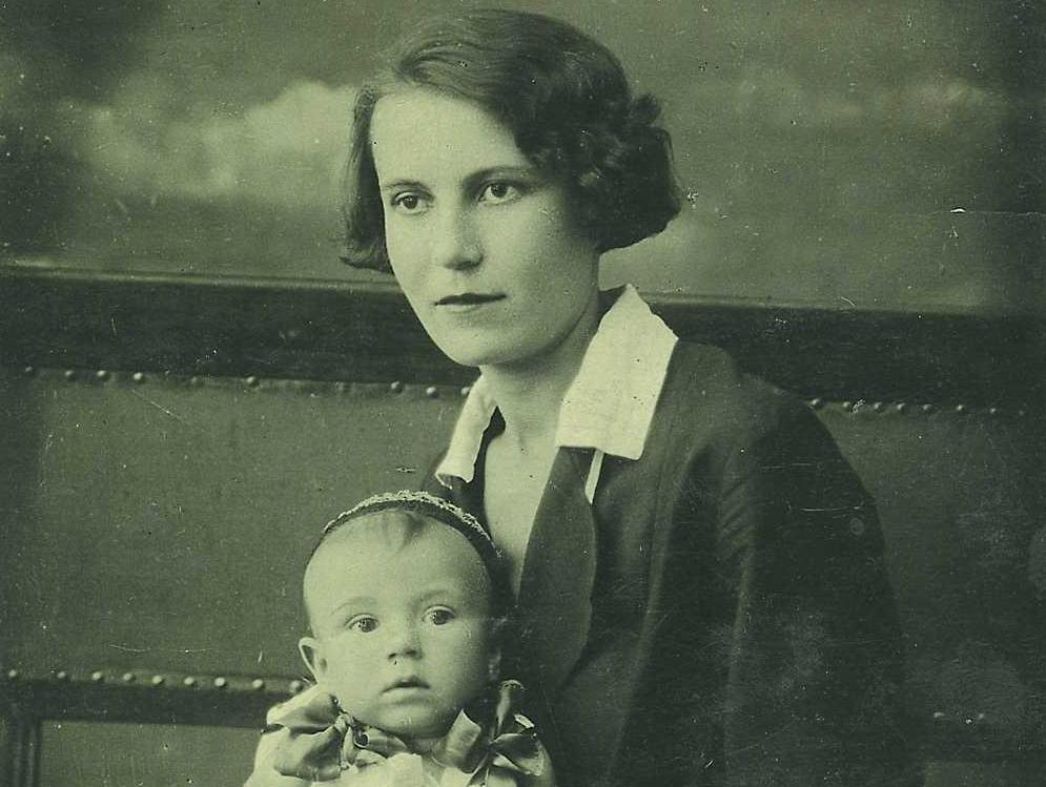Transcript
Narrator Aleksandra was 24 years old in the summer of 1943 when the Gestapo arrested her. She and other political inmates were taken to Buchenwald.
The Lawriks were poor. Aleksandra’s 6-month-old brother had died of starvation even before the great famine that cost tens of thousands of lives in the Ukraine in the early 1930s. Aleksandra joined the communist party, got married early and had her first child when she was 17. She later recalled:
Aleksandra Lawrik “A former comrade who worked for the Gestapo saw me and told me I would be arrested that night. He said I shouldn’t hide or else they would take my child or one of my parents. That is why I stayed.”
Narrator A few days after her arrival in Buchenwald, she was taken to Ravensbrück. The situation there resembled a slave market. The women were physically examined to determine whether they were fit to do the demanding work. A factory manager chose Aleksandra to work in the chemical industry at I.G. Farbenindustrie in Wolfen. In the department where she worked, women soaked cellulose in caustic soda. Aleksandra’s task was to process rayon. This work was very dangerous. The aggressive fumes chemically burned the women’s lungs. After the war, one of Aleksandra’s lungs would have to be removed. The female overseers at the subcamp Wolfen were extremely brutal, beating the women and girls over trifles. Following one such attack, Aleksandra was unable to work for two days.
Aleksandra Lawrik “At the end of the shift, we were supposed to leave our workplace in a clean condition. We could not do it. [...] We went home, without anyone remarking on it. When we came back the next day, they beat us. Really beat us. I fell to the floor and was kicked. Then the girls helped me because I would not have made it home alone.”
Narrator Aleksandra was given scraps of fabric by the women from other departments and began to do embroidery to escape the cruel realities. She started drawing everyday scenes from the camp. But one day her sketchbook was discovered.
Aleksandra Lawrik “When we were back in the camp, I was called and was told to go to the gate. This new manager came and told be to go eat and then go to the bunker [...]. But he was a kind person. I actually have to be grateful to him. He went with me to the bunker and told me: ‘Your ability, your talent will remain with you forever. When you are back home, you can continue drawing, but not here.”
Narrator When the camp was evacuated in April 1945, Aleksandra managed to escape. She succeeded in getting all the way home by herself. She rejoined her mother and her little son.
Aleksandra Lawrik “After we had calmed down a bit, I thought, now I’ll wake my son. [...] He looked at me and said, ‘Mama’. He sat up, then sat down next to me. For three hours, he could not say a word. Dawn came, and he still hadn’t said a word. Then he said [...]: ‘I always said Mama would come.’
Narrator But the return to her life was not easy. Aleksandra was considered a traitor to her native land. She was expelled from the communist party and interrogated by the KGB. After further imprisonment, she did not find employment until 1954.


